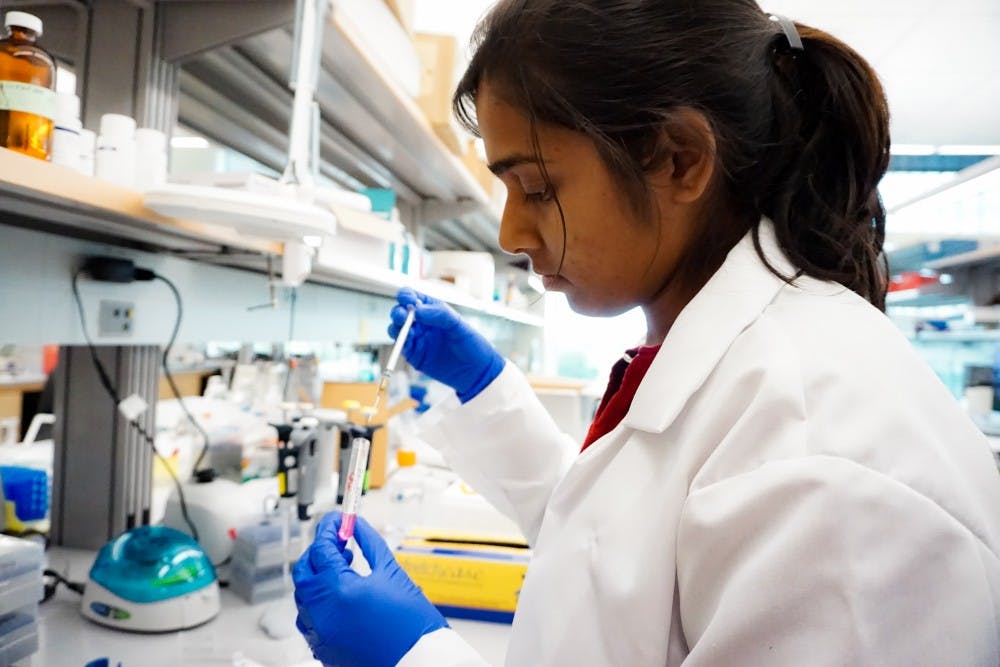
Researchers at the Perelman School of Medicine found that mutations in the ANT protein can lead to heart disease.
Credit: Sukhmani KaurResearchers at the Perelman School of Medicine recently conducted a study linking heart disease to an inability for the body to remove damaged mitochondria, Penn Medicine News reported.
The study, published in Nature, found that a protein called adenine nucleotide translocator (ANT) is needed to remove damaged mitochondria from the body in a process called mitophagy. Mutations in this protein inhibit the ability of ANT to conduct mitophagy, which leads to heart disease.
Mitochondria are small cellular organelles that generate most of the body's energy. They are particularly important in high-energy demanding organs such as the heart and liver. A variety of quality control mechanisms make sure defective mitochondria are removed so the network can function properly.
While previous research indicated that ANT is involved in heart disease, the reason for this was unclear. Many researchers thought that mutations in ANT inhibited the mitochondria’s ability to produce chemical energy for cells, Penn Medicine News reported. However, the findings from Penn Medicine revealed that ANT mutations do not affect chemical energy production at all, and the negative effects are in fact due to mitophagy disruption.
The research team conducted their study using a CRISPR-Cas9 genome-wide screening, Penn Medicine News reported. This technique uses proteins from bacteria to remove and edit target genes with high precision. Using this approach, the researchers found that mutations in ANT disrupt mitophagy in many cell types, a system completely independent of ANT's role in energy production.
CRISPR-Cas9 has been used in many past Penn Med studies. This year, Penn Med has used the technique to treat cancer patients in the first human CRISPR trial in the United States.
Authors of the study said they hope their work will help researchers find ways to correct mitophagy and alter the mutations.
"Now that we know these diseases are caused by defective quality control rather than a lack of ATP generation, we can start thinking about therapeutic approaches that improve the quality control," Cardiovascular Medicine professor and corresponding author Zoltan Arany told Penn Medicine News.
The Daily Pennsylvanian is an independent, student-run newspaper. Please consider making a donation to support the coverage that shapes the University. Your generosity ensures a future of strong journalism at Penn.
Donate







